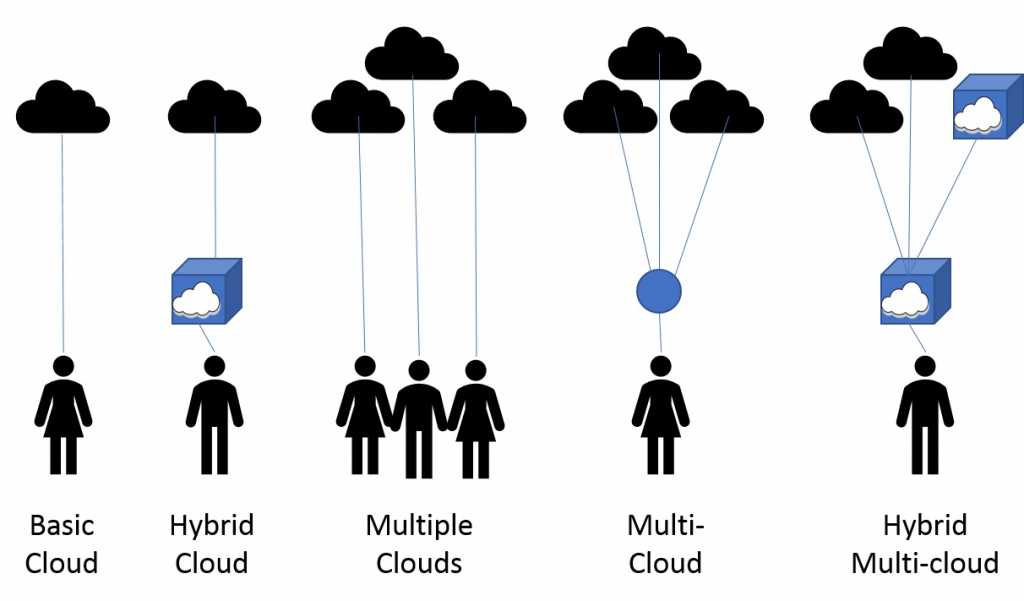OVH celebrated its twentieth birthday with a new name. The French service provider is now OVHcloud, the “cloud” extension to “Online Virtual Hosting” a sign of the company’s key growth driver, a reflection of its position in Europe, and an expression of its global aspirations. Today, OVH cloud services – including public cloud, dedicated private cloud and remote access bare metal servers – and are growing much more quickly than legacy web hosting and domain products, and currently account for approximately 70 percent of the company’s revenue. With strong technical capabilities in this area and ambitious leadership, the company has emerged over the last several years as Europe’s primary cloud service provider; based on a price for performance analysis, OVH has been recognized as Europe’s leading CSP. And as it looks to increase its presence in markets worldwide, the company is focusing on cloud capabilities that it believes will position OVH to compete with the global hyperscalers.

Curiously, as it rebrands to support growth, OVH is defining itself more by what it is not, than by what it is. As company founder and chairperson Octave Klaba noted at the OVHcloud Summit in Paris this month, “Our DNA is more European” [than other providers]; and as the company’s newish CEO Michel Paulin explained in his Summit keynote address, “All [cloud] initiatives are based on Octave’s vision for European solutions in the face of American and Chinese hegemony,” or market dominance by US headquartered providers including Microsoft Azure, AWS and Google, and the rapid growth Alibaba Aliyun Cloud, which is reportedly now the third largest cloud provider in the market. OVH is the “alternative cloud,” according to company executives, which operates differently that US and Chinese firms, and can offer users a whole host of “cultural values” that have been translated to technology offerings.
What is the “alternative cloud”?
In its market outreach, OVHcloud has defined a SMART cloud that supports the data revolution, but a revolution that will mean progress for all and the freedom to innovate. Klaba’s vision is a “simple one” in which cloud channels data into “progress towards freedom,” and which is antithetical to US or Chinese approaches. He explained:
Although we talk about the ‘cloud’, there is no single, neutral cloud. Instead, behind each product lies a particular set of values, a distinct world view. We need to be aware of this. The US internet, the Chinese internet, the European internet – they are not all based on the same shared values.
At OVH, we don’t want any closed ecosystems that keep their users captive and suck up profit and value, with the help of artificial intelligence, to the sole benefit of that cloud provider. At OVH, we don’t and will never gobble up our customers’ businesses by diversifying and attacking them in their own fields. At OVH, the freedom and confidentiality of our customers are fundamental.
What we want to do at OVH is allow everyone to take control of their data, innovate and develop new ideas and businesses – in total freedom. That is why we keep on innovating, day after day, to make sure our cloud develops with the interests of our customers and partners in mind. A different type of cloud, one that allows us to grow and succeed together.
As it translates values to technical capabilities, the OVH SMART cloud is characterized by the following attributes:
S – leveraging the familiar VMware platform for private cloud, and benefiting from rapid deployment of servers based on an industrial model in private and public offerings, the OVH cloud is Simple to use and Swift to implement.
M – through an extensive, company owned network (dedicated 20Tbps fiber-optic network capacity and an additional 34 points of presence) that connects 30 data centre locations, OVH provides Multi-local cloud services that are proximate to customers across the globe. The goal is to reduce latency for time sensitive applications and to support customers’ data sovereignty requirements. Klaba views “multi-local” as the OVHcloud key to adapting to different customer contexts, constraints and cultures.

A – the OVH cloud industrial model delivers a low cost approach to data centre build, allowing the company to pass on savings to customers, while standardization in operations, such as server monitoring via RFID tagging to optimize maintenance, works to ensure uptime and performance. Ongoing IT innovation – according to CTO Alain Fiocco, all servers have received update in the past year – also contributes to performance improvement in servers that are assembled internally. These factors contribute to the OVHcloud claim that it delivers the best price/performance ratio in the marketplace.
Additionally, both public and private cloud resources and bare metal servers, are delivered in in a way that meets elastic demand. As Fiocco explained, while private cloud servers are dedicated in order to address data security concerns, resources can be spun up or returned in a matter of minutes – and the customer pays only for what is consumed. At the same time, OVHcloud ensures Accessibility through contractual arrangements that specify a set, predictable monthly fee for public cloud (starting at $36/month), and for servers that range from low end (refurbished) machines offered for tens of dollars a month to high end servers at $336/month.
R – OVH cloud resources are Reversible, meaning they are open and interoperable. Based on standard open source technologies, including OpenStack, Kubernetes, and Hadoop, the company’s public cloud represents the largest implementation of OpenStack anywhere. As part of its cloud management interface, the company provides extensive APIs to ensure interoperability with ecosystem tools and solutions in support of its policy on full data reversibility (ex. repatriation from cloud to in-house resources).
T – Transparency is achieved through the OVHcloud management consul, which shows what infrastructure is in play at any given moment, but also data location. For OVH, transparency also refers to a cloud that functions in a responsible manner, providing full data protection, supporting data confidentiality, and the ability to demonstrate compliance with regulatory requirements.
At the Summit, OVHcloud executives focused on how tech capabilities align with values to help to address two critical user concerns. The first is a market shift towards multi-cloud deployment. While estimates vary, InsightaaS and other researchers are agreed that user needs will be fulfilled by an increasing number of platforms, as illustrated in the Figure below. Multi-cloud environments, however, present a number of challenges. For example, complexity in managing the varied technical requirements of different cloud services and platforms, or data management issues around storage duplication and data transfer cost and speed requirements emerge in multi-cloud environments. In addition, there may be financial challenges (different pricing models), as well as administrative and operational challenges (different SLAs and service metrics). However, despite potential obstacles, users are moving to deploy increasing numbers of cloud platforms, in increasing numbers: a Forrester/Virtustream survey of US, EMEA and APAC organizations found in 2018 that 86 percent characterize their cloud strategy as ‘multi-cloud’, while a RightScale cloud report for 2019 found that on average, for infrastructure needs, organizations use three public cloud and just under four private cloud providers.


Multi-cloud adoption is driven by several factors. At a basic level, it may be the product of organizational merger or cloud sprawl in shadow IT scenarios; in other cases, multi-cloud may be a deliberate strategy to avoid vendor lock in, to ensure resilience or application uptime in face of provider outages, to promote better performance (latency, jitter and packet loss can be improved through geographical proximity), or to more easily comply with data governance requirements (for data location, for example). While users may experience foot-dragging from providers who have little financial incentive to make multi-cloud easy or convenient, OVHcloud has adopted a different stance: open platforms, tools to enable reversibility, free data transfer on the OVH network, and measures to enhance transparency outlined in the SMART cloud list above are intended to support data portability, an important requirement in multi-cloud environments. According to CEO Paulin, “multi-cloud does not scare us. It is the future of cloud as you must always have freedom.”
A second critical concern today falls under the ‘transparency’ umbrella – and relates to compliance with legislation passed in different jurisdictions to define rights and responsibilities around data protection. As a French company, OVH is not subject to The Cloud Act, a US federal law enacted in 2018 that is designed to allow federal law enforcement agencies to compel US-based technology companies to provide requested data, whether that data is stored in country or on foreign soil. OVH views its autonomy as a key differentiator for the company – according to the Act, US cloud services firms would be required to deliver data, including that residing on servers in French locations – and even as a question of national interest. As Paulin argued, the protection of data has become a social concern, and the key to the protection of democratic principles, which have been compromised in US social media electoral scandals, (i.e. the Facebook affair), and even a question of national sovereignty.
Global outreach?

In this interpretation of sovereign interests, OVHcloud is apparently not alone. In Summit presentations from key French government officials, the threats posed to French sovereignty by US cloud providers was reinforced, and an alternative path for French organizations outlined. For example, Cédric O, French minister of state for Digital Government, argued that a competitive technology sector is critical to providing jobs, and to protecting values around data protection from process imposed by non-European players. “It’s a question of sovereignty,” he explained, and he called for the development of a technology ecosystem that would be supported by the government, and led by OVHcloud and other providers: “if we don’t want to be strangled, we need to work together.” Similarly, in his description of digital transformation in the military, Arnaud Coustilliere, vice-admiral of the Ministry of Defense, spoke to the need to drive innovation through work with cloud infrastructure partners that can help the army protect data, but also share it in a responsible way to ensure the common good. According to Coustilliere, the military needs to store data with providers, but first they need to establish trust with a supplier, and have this represented in legal frameworks. “When we look at issue of sovereignty,” he added, “we don’t need to define physical boundaries, but rather have to define a digital strategy framework,” as we “can’t give data to partners that don’t share the same vision of a common destiny.”
This focus on common values is akin to what a recent Economist article argued is “dirigiste industrial policy,” which countries like France and Germany have recently espoused. To support native industry, these have called for mergers of European firms to create industrial “champions” that would have the heft to address competition from Chinese firms and other giants.[1] Introduced at last year’s Summit, Klaba’s alternative GAFAM (Gang of Five big US tech companies) concept – a conglomeration of French digital firms that would engage in co-development to bring products to market more quickly, and which would support the financing of new digital services businesses, is one example. In his closing remarks to this year’s Summit audience, Klaba returned to this project, outlining an enterprise grade social network PoC that OVH is launching in collaboration with “ecosystem” partner, the “human” focused consultancy Mantu.
The appeal to patriotic sentiments in domestic markets, or even to initiatives aimed at developing single market EU potential – as in the European Cloud Initiative or the AI4EU artificial intelligence project, which OVHcloud is supporting to build the EU’s first on-demand AI platform – in these kinds of projects beg questions on the development of global opportunities. Services industries thrive on outreach to global markets, and cloud services that can optimize resources across a broad, global network are best positioned to capture enterprise demand – a new market focus for OVHcloud – for distributed services. On this score, OVH has technical capability – 30 data centres linked by a dedicated network. But it is also working to support the legislative frameworks that address French and EU data concerns, which may also appeal to customers on a global basis – namely the General Data Protection Regulation (GDPR) on data protection and privacy for all citizens of the European Union and the European Economic Area, which includes the transfer of personal data outside the EU and the EEA regions.
In its own operation, OVHcloud complies with GDPR requirements in areas like vendor lock-in, and with respect to The Cloud Act, it has effectively firewalled off its US division from the company’s primary cloud network. However, as Alban Schmutz, business development and public affairs for OVHcloud, explained, confusion around the application of GDPR continues to exist in the marketplace: in his view the “key conditions” for compliance include knowing what regulations you are aligned with; what provider you are with, and if you can move (licenses and data); what is required in terms of security and data protection; and what needs to be in place to demonstrate that you are providing that protection. To help, OVHcloud under Schmutz’s leadership has collaborated with CIOs from major firms across Europe to develop a Code of Conduct for GDPR that would effectively replace MLAT (Mutual Legal Agreement Treaties) negotiated on an ad hoc basis by the French Ministry of Justice with other countries. Treaties on the subpoena of data may or may not exist in other jurisdictions, and this Code may offer similar benefit in these countries. Submitted for approval to the European Data Protection Board in May 2019, the Code of Conduct is intended to provide guidance on privacy protection in absence of individual country regulation, acting as a kind of standard for behaviour that is consistent with GDPR, which can educate both data controllers and processors. According to Schmutz, the Code focuses on four key points; designed for the GDPR, it helps customers demonstrate compliance, it requires transparency around data location, and works to ensure that customers can choose where data is stored.
For data controllers (customers), adherence to the Code can act as an effective risk mitigation technique; for OVHcloud, development of the code demonstrates that OVH has its own house in order from a regulatory perspective, and that it can provide thought leadership to cloud users in this area. And it is on this score that the OVHcloud “alternative” may have developed its best prospects for outreach to customers on a global basis. An EU regulation, GDPR is rapidly becoming a de facto standard for private sectors organizations that do business worldwide – that buy and sell in Europe or to European firms – and it is pushing the envelope on data protection regulation in other jurisdictions. Canada, for example, has recently doubled down on requirements in modernization of its privacy legislation and has established a Digital Charter for the responsible collection and use of data that address many GDPR concerns. At the OVHcloud Beauharnois data centre facility, over half of customers are US based. If these are looking to integrate into a pan-national regulatory environment with worldwide appeal, who would not?
[1] A Singular Opportunity. Europe’s economy. The Economist. September 14, 2019. p. 16.








